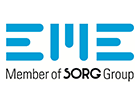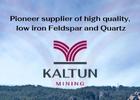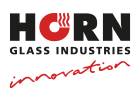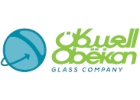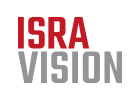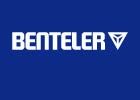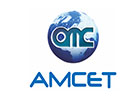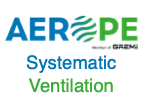Specialty glass manufacturer presents ambitious plan
The international specialty glass Group SCHOTT is preparing to face up to the challenges of climate change more than ever before. “We want to turn SCHOTT into a climate neutral company by 2030 and thus actively contribute to climate protection,” explains Dr. Frank Heinricht, Chairman of the Board of Management of SCHOTT AG. No other company in the specialty glass industry has ever set itself such an ambitious goal. The “Zero Carbon” project is an integral part of the new Group Strategy.
With the “Zero Carbon” strategy project, SCHOTT is heralding a new era in its environmental and climate management. “Pioneering spirit, long-term thinking and responsible action have been deeply rooted in our DNA since the days of our founding. We are guided by these principles when it comes to this great challenge as well,” Chairman of the Board Heinricht adds.
As a specialty glass manufacturer, the company operates in an energy-inten-sive industrial sector. Specialty glasses and glass-ceramics are melted in large melting tanks at temperatures of up to 1,700 degrees Celsius. In the past, these melting tanks have been heated with the fossil fuels natural gas, heating oil or electricity. A lot of energy is also required for the further pro-cessing of the glasses. Due to this energy requirement, the climate-relevant footprint is around one million tons of CO2e per year.
“We see three steps in our commitment to climate protection: first, we want to avoid as many climate-damaging emissions as possible, significantly reduce unavoidable emissions in the next step and, if nothing else is possible, finally compensate for the remaining emissions,” says Dr. Heinricht. SCHOTT is thus helping to achieve the goals of the Paris Agreement on Climate Protection.
The action plan on achieving climate neutrality at SCHOTT comprises four fields of action:
- Improvement of energy efficiency
- Switching to green electricity
- Technological change
- Compensation for technologically unavoidable emissions
- Energy efficiency as a permanent task
SCHOTT has been constantly striving to improve its energy efficiency for dec-ades. The introduction of oxy-fuel melting technology and the increasing use of electricity to heat the melting tanks since the 1990s has already made it possible to reduce specific energy consumption by more than 30 percent. As part of the company’s proven energy management system, the experts are working intensively to identify and exploit further savings potential.
Switching to green electricity by 2021
When it comes to electrical power, SCHOTT will be relying solely on green electricity in the future. The company intends to cover 100 percent of its elec-tricity needs with renewable energy sources such as hydroelectric power, wind power, solar energy and biomass by 2021. SCHOTT attaches great im-portance to ensuring that green electricity has a high-quality certification and thus makes a strong contribution to the transition in energy.
New technologies with a focus on hydrogen
In the long term, the company intends to completely dispense with the use of fossil fuels, as far as this is technologically feasible. “This transformation pro-cess will take time and require high development and investment costs, how-ever,” says Heinricht. The company views hydrogen technology as a promis-ing solution. In addition, researchers and melting technologists are assessing the feasibility of yet other technological approaches. “We believe that as an in-novation driver in our industry we can provide important impulses in this area in the coming years and decades,” Dr. Heinricht concludes.
Compensation for technologically unavoidable emissions
Until CO2-free solutions for heating large glass melting tanks become availa-ble, SCHOTT intends to compensate for technologically unavoidable emis-sions by investing in climate protection projects. The Group is currently creat-ing a compensation portfolio that meets high standards for the sustainability of the projects. These could include reforestation projects in various countries that are certified according to strict standards, for example.
To calculate its climate-relevant emissions, SCHOTT considers the emission of all greenhouse gases. The company currently includes emissions from its own production (Scope 1 of the Greenhouse Gas Protocol) and from energy purchased (Scope 2) in the calculation. In Scope 3, SCHOTT also takes busi-ness trips and employee commuting into account. In the medium term, the other Scope 3 emissions are then to be included, which also consider emis-sions in the supply chain. In order to establish comparability with regard to their climate impact, greenhouse gas emissions are expressed in CO2 equiva-lents (CO2e).



